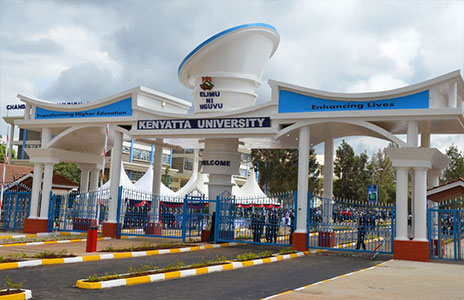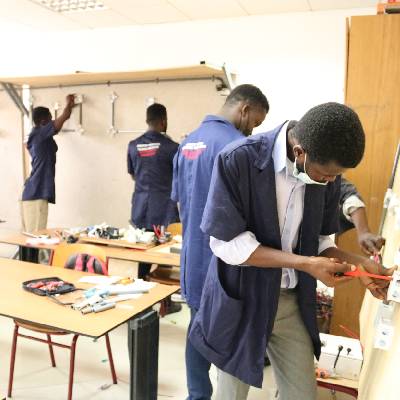
Economics has quite an extensive role to play in a multitude of contexts, particularly in solving agricultural and environmental problems. For example, it has much to contribute to improved policies for the efficient targeting of agricultural subsidies, the control of pollution, and the depletion of natural resources.
Economists study the allocation of resources between competing and alternative uses. Resources are finite, and people and governments must make choices. By studying the way that people make choices, economists are able to make decisions and provide solutions.
This Bachelor of Economics program is both a rigorous and flexible program of study that provides analytical tools and aids in the student?s development of problem-solving skills for economic analysis while allowing individuals the opportunity to explore specific areas of interest in various fields of economics.
Economics has quite an extensive role to play in a multitude of contexts, particularly in solving agricultural and environmental problems. For example, it has much to contribute to improved policies for the efficient targeting of agricultural subsidies, the control of pollution and the depletion of natural resources.
Economics has three main subsections:
- Macroeconomics, which addresses issues such as the level of output and prices, inflation, and unemployment within the economy.
- Microeconomics, which pertains to how consumers make purchase decisions and utilize their time as well as how firms make decisions on what to produce and who to employ; and
- Econometrics, which provides the technical tools to estimate economic models from data and to forecast economic outcomes.
Entry Requirements
- A KCSE mean grade of C+ with at least a grade C in each of the cluster subjects:
- English/Kiswahili
- Mathematics A / Any Group II
- Any Group III
- Any Group II / 2nd Group III/Any Group IV/ Any Group V
- KCSE Subject Grouping
- A minimum of two (2) principal passes and a subsidiary pass in the General Paper at A-level and have passed with a credit in mathematics at O-levels.
- Higher Diploma (HDip) in Business Management or Equivalent
Cluster Subjects
Group I: English, Kiswahili, Mathematics
Group II: Biology, Physics, Chemistry
Group III: History and Government, Geography, Christian Religious Education, Islamic Religious Education, Hindu Religious Education
Group IV: Home Science, Art and Design, Agriculture, Aviation Technology, Computer Studies
Group V: French, German, Arabic, Music, Business Studies
Objectives of Bachelor of Economics
Bachelor of Economics students gain an understanding of consumer and firm-level decision making and how the economic system functions and can be influenced.
Application areas include such topics as health care, sports, tax policy, financial markets, international marketing and trade, and natural resources. The following options are available:
- The agricultural economics option deals with economic issues related to food and fiber supply and demand and the natural resource base that supports agricultural production and societal needs. Students will have expertise applicable to public decision-making and private decisions of farms, ranches, and agribusinesses.
- The environmental and resource economics option trains students to make informed decisions while carefully weighing the trade-offs between protecting, restoring, developing, and allocating natural resources.
- The business economics option trains students to use economic concepts to better understand the management, marketing, and financial problems faced by businesses operating in a market system.
- The financial markets option provides students with solid, analytical training in the substantial overlap between economics and finance. The option requires coursework that focuses on the analysis of financial markets.
- The international economics and development option provides students an understanding of how policies, institutions and endowments influence physical, human, and natural capital accumulation which leads to the emergence of poor and rich communities and countries.
- The economics, policy, and law option provides students with the analytical skills used in law school and policy-making including those used in tax, law, regulation, program, policy, and project arenas.
- The quantitative economics option provides students with the skills to understand and use more advanced statistical and mathematical models, preparing them for careers involving data analysis or for advanced education ? such as a Ph.D. in economics or a related field.
Bachelor of Economics graduates will:
- have gained a solid understanding of microeconomics, macroeconomics, and finance;
- develop critical-thinking skills and knowledge in analysis and understanding of the economic events and everyday problems;
- learn how to use empirical evidence to evaluate economic problems and theories, as well as strategic business and policy proposals;
- master solid communication skills in order to formulate a well-organized argument and communicate effectively in written, spoken, and graphical form about specific economic and financial issues.
What you will study
Year 1, Semester 1
- Introduction to Microeconomics
- Basic Mathematics
- Introduction to Business Studies
- ICT Concepts
- Linear Algebra
- Communication Skills
- Critical & Creative Thinking
Year 1, Semester 2
- Introduction to Macroeconomics
- Calculus
- Economic Statistics I
- Fundamentals of Accounting
- Computer Applications
- Society & Culture
- Health Education
Year 2, Semester 1
- Intermediate Microeconomics
- Development Studies
- Mathematics for Economics I
- Economic Statistics II
- Cost Accounting
- Data Base Systems
- Legal Systems and Method
Year 2, Semester 2
- Intermediate Macroeconomics
- Economics of Banking and Finance
- Mathematics for Economics II
- Numerical Methods
- History of Economic Thought
- Principles of Management
- Company Law
Year 3, Semester 1
CORE UNITS
- Microeconomic theory
- Economic Growth and Development
- Operations Research I
- Entrepreneurship Development
- Business Ethics and Governance
ELECTIVES
- Labour Economics
- Economics of Microfinance
- Economics of the Industry
- Welfare Economics
Year 3, Semester 2
CORE UNITS
- Macroeconomics Theory
- Economic Development Policy and Planning
- Research Methods
- Business Plan Development
ELECTIVES
- Agricultural Economics
- International Economics
- Urban and Regional Economics
- Operations Research II
Year 4, Semester 1
CORE UNITS
- Monetary Economics
- Introduction to Econometrics
- Public Finance
- Research Project
ELECTIVES
- Financial Economics
- Economics of Natural Resources
- Health Economics
- Demographic Economics
- Economics of Human Capital
Year 4, Semester 2
CORE UNITS
- E-Commerce
- Macroeconomic Modelling and Forecasting
- Project Planning and Appraisal
- Research Project
ELECTIVES
- Economics of Federalism and Fiscal Decentralization
- Environmental Economics
- Transport Economics
- Managerial Economics
Related articles
-

A Guide to Civil Engineering Degree and Diploma Programs in Kenya
08-Nov-2025 -

Electrical Engineering in Kenya: A 2025 Guide for KCSE Graduates
08-Nov-2025 -

Mechanical Engineering in Kenya: A 2025 Guide for KCSE Graduates
08-Nov-2025 -

Engineering Courses in Kenya: A Guide for 2025 KCSE Graduates
08-Nov-2025 -

Education Pathways in Kenya — From Basic Education to Tertiary | College Guide
06-Nov-2025 -

The Bird and the Mirror: A Reflection on Identity, Perception, and Illusion
07-Feb-2025
Colleges offering Bachelor of Economics

Starehe
University of Nairobi

Ruiru
Kenyatta University

Kirinyaga Central
Kirinyaga University

Likoni
Maasai Mara University

Kitui West
South Eastern Kenya University

Starehe
Technical University of Kenya

Mathira
Karatina University

Runyenjes

